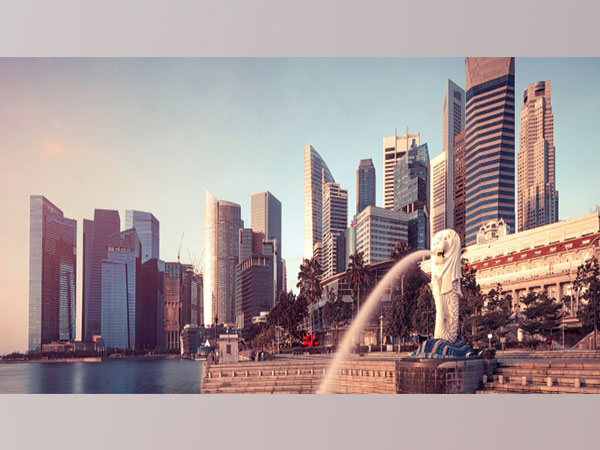What is the Best Time to Visit Singapore?
Sep 30, 2024
ATK
New Delhi [India], September 30: Singapore, a dynamic city-state in Southeast Asia, stands as a beacon of modernity and tradition intertwined. Renowned for its sleek skyscrapers, verdant landscapes, and rich cultural heritage, Singapore is a premier destination for discerning travellers.
Beyond its iconic landmarks and luxurious accommodations, the city is celebrated for its vibrant street food culture, with hawker centres and traditional shop houses offering culinary delights that reflect the nation's diverse heritage. As one of Asia's greenest cities, Singapore boasts numerous cycling paths, allowing visitors to explore its beauty from coast to coast in a single day. Whether your visit is for leisure, shopping, or cultural enrichment, Singapore promises an experience that caters to all.
Weather
Singapore enjoys a consistent tropical climate, characterized by warm temperatures and high humidity throughout the year. The city experiences minimal variation in temperature, with averages ranging between 25°C and 31°C. May typically registers as the warmest month, while December and January are slightly cooler, often accompanied by heavier rainfall. This stable weather pattern makes Singapore a year-round destination, though the timing of your visit can enhance your experience depending on the activities you wish to pursue.
The cultural vibrancy
Singapore's cultural vibrancy is on full display during the festival season, particularly from February to April. The Chinese New Year, a significant celebration, transforms the city with illuminated lanterns, vibrant decorations, and a festive atmosphere. While some local businesses may close for the holiday, major shopping centres and attractions remain open, allowing visitors to immerse themselves in the festivities. The Chingay Parade, occurring in the second week after the Lunar New Year, is a must-see event featuring a dazzling procession of floats and performances.
March brings the celebration of Holi, the Hindu festival of colours, where participants joyfully throw coloured powders in a celebration of life and love. This event, held at various venues across Singapore, offers a unique and lively cultural experience.
Thaipusam, celebrated in February, is one of Singapore's most visually striking festivals. Devotees participate in a sacred procession, often piercing their bodies with hooks and skewers as acts of devotion and penance. This festival, set against Singapore's modern backdrop, provides a powerful display of faith and tradition.
Shopping and more...
June and July are ideal for shopping enthusiasts visiting Singapore. Despite being the hottest months of the year, these months coincide with the Great Singapore Sale, where shoppers can enjoy significant discounts across the city's retail hubs. The city's air-conditioned malls offer a respite from the heat, providing a comfortable shopping environment.
June also marks the Dragon Boat Festival, where traditional dragon boat races take place amidst much fanfare. Visitors can indulge in festive treats like rice dumplings, a traditional delicacy wrapped in bamboo leaves.
Food lovers should consider visiting during the Singapore Food Festival, held in June and July. This event displays the city's culinary diversity, featuring local and international cuisine. With food villages, cooking workshops, and events spread across the city, the festival is a highlight for any gastronome.
How many days are enough in Singapore?
A visit to Singapore typically requires three to four days to explore its main attractions. Start with shopping along Orchard Road, where luxury brands and local designers offer a diverse retail experience. The colourful shop houses of Kampong Glam provide a more traditional shopping experience, with antiques and unique souvenirs aplenty.
For culinary connoisseurs, dining at Candlenut, the world's first Michelin-starred Peranakan restaurant, is necessary. Explore the resurgence of Singapore's tea culture, and enjoy a cocktail at the historic Raffles Hotel. Nature enthusiasts will find solace in the Singapore Botanic Gardens, Gardens by the Bay, and the National Orchid Garden, all of which provide a serene escape from the urban landscape.
For those wishing to delve deeper into Singapore's natural beauty, a weeklong stay is recommended. This allows time to explore Fort Canning Park, walk or cycle the Coast-to-Coast Trail, and discover the MacRitchie Reservoir and Bukit Timah Nature Reserve. For a truly unique experience, consider a journey on the Eastern & Oriental Express, offering seasonal return trips from Singapore's Woodlands station.
Travel Insurance for Singapore
As you plan your visit to Singapore, securing travel insurance online or offline is a prudent step. Travel insurance for Singapore provides essential coverage, including medical emergencies, trip cancellations, lost luggage, and unforeseen events. With the right insurance, you can enjoy peace of mind throughout your journey, knowing that you are protected against potential disruptions.
In conclusion, the optimal time to visit Singapore is largely dependent on your personal interests and the experiences you seek. Whether drawn by its cultural festivals, vibrant shopping scene, or tranquil green spaces, Singapore offers something for every traveller. Ensure a smooth and worry-free trip by purchasing travel insurance online, and immerse yourself in all that this remarkable city has to offer.
(ADVERTORIAL DISCLAIMER: The above press release has been provided by ATK. ANI will not be responsible in any way for the content of the same)








